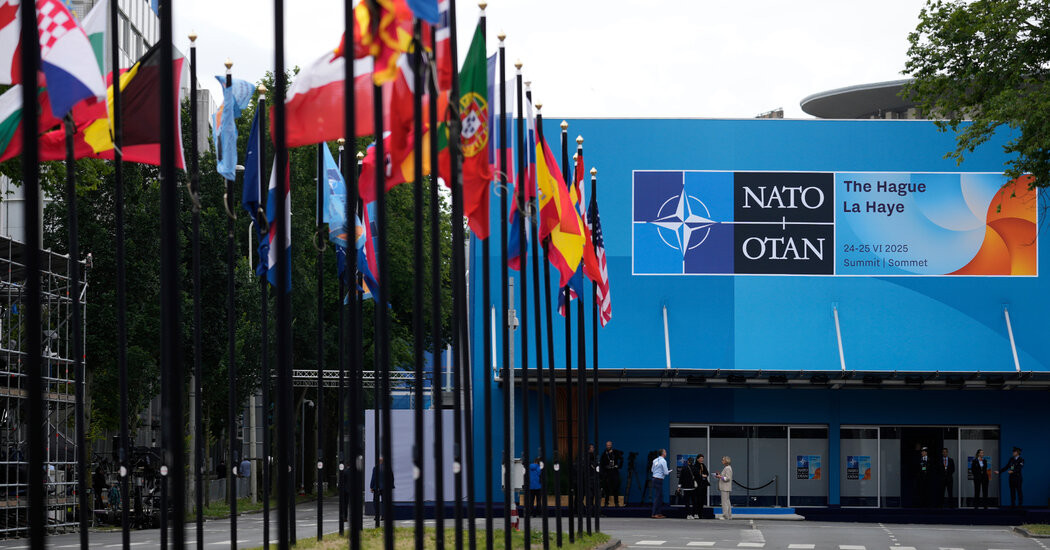

An internal rift over defense spending and President Trump’s disregard for Ukraine have lowered expectations for the gathering.
NATO opened a high-level meeting on Tuesday against the backdrop of one war in the Middle East overshadowing another on the military alliance’s doorstep. A tentative cease-fire between Israel and Iran is expected to dominate discussions, while Russia’s invasion of Ukraine might muster merely a mention.
But NATO has other things to worry about at its annual summit of alliance leaders in The Hague, the Netherlands — namely, maintaining a unified front amid an internal spat over military spending.
The new cease-fire, announced by President Trump late Monday, could rally NATO states toward a common goal. It also provides Mr. Trump the opportunity to take a victory lap at the brief gathering, which is designed to avoid diplomatic disruptions over his spending demands.
“Counter-intuitively, this could have a positive effect on the NATO summit,” said Liana Fix, a Europe expert at the Council on Foreign Relations, because it could distract from “escalation on other issues.”
Mark Rutte, NATO’s affable secretary general, predicted that the question of the cease-fire would not draw attention from the summit’s main focus.
If NATO can’t “deal with the Middle East, which is very big in commanding all the headlines, and Ukraine at the same time, we should not be in the business of politics and military,” he said on Tuesday.

![Enjoy the [Road] Show Travel Mug with Handle, 14ozEnjoy the [Road] Show Travel Mug with Handle, 14oz](https://georgemagazine.com/wp-content/uploads/2024/08/479070202831754764_2048-300x300.jpeg)
![[GOOD PRESS] ON[GOOD PRESS] ON](https://georgemagazine.com/wp-content/uploads/2024/08/16389056566437433941_2048-300x300.jpeg)
